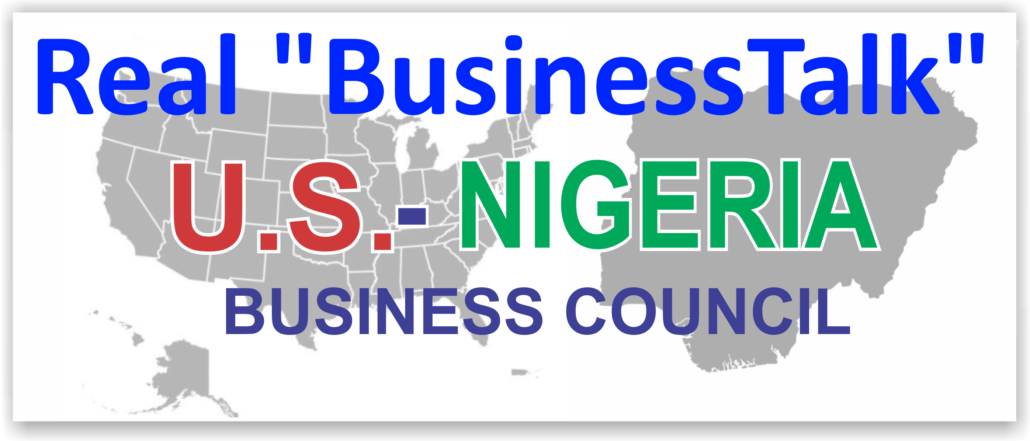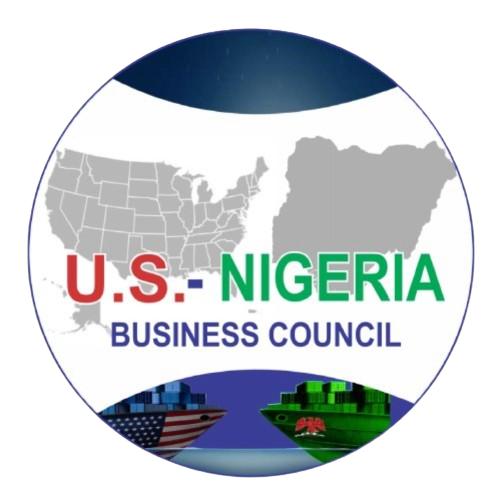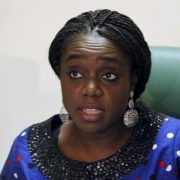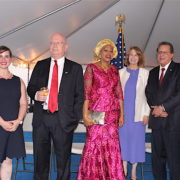“BusinessTalk” – A Trade and Investment Webinar Series

Overview:
The Monthly Webinar, brainstorming on Prevailing Trade, Investment, and Economic Challenges Across the U.S.-Nigeria Business Axis is a platform designed to facilitate discussions, exchange of ideas, and collaboration between key stakeholders in the business communities of the United States and Nigeria. The webinar aims to address the current challenges, opportunities, and trends impacting trade, investment, and economic relations between the two countries.
The U.S.-Nigeria business relationship is a critical one, with both countries being key players in the global economy. However, there are several challenges that hinder the full potential of this relationship. This monthly webinar aims to address these challenges and provide insights and solutions to foster stronger trade, investment, and economic ties between the two countries.
Objective:
The main objective of this webinar series is to facilitate dialogue and collaboration between key stakeholders in the U.S. and Nigeria to address the prevailing trade, investment, and economic challenges. By bringing together experts, policymakers, and business leaders, we aim to identify opportunities for growth and development across the aisle, particularly Nigeria.
Format:
The webinar will be held every third Sunday of the month at 7:30pm WAT (2:30pm EST), starting on April 21, 2024. Each session will feature panel discussions, presentations, and Q&A sessions with experts from either country. Topics will range from trade policy and regulations to investment opportunities and economic trends affecting the U.S.-Nigeria business axis.
Audience:
This webinar is targeted at business leaders, policymakers, academics, and anyone interested in the U.S.-Nigeria business relationship. Participants can join from anywhere in the world, making it a truly global platform for dialogue and collaboration.
Schedule:
- Frequency: Monthly
- Date: Every third Sunday of the month
- Time: 7:30 pm WAT (2:30pm EST)
- Starting Date: April 21, 2024
Platform:
The webinar will be conducted on Zoom, allowing participants to engage in real-time discussions, ask questions, and network with industry experts, policymakers, and business leaders. In addition, the webinar will be live-streamed on YouTube to reach a wider audience and enable viewers to access the discussions remotely.
Key Topics:
Each webinar session will focus on a specific theme related to trade, investment, and economic challenges across the U.S.-Nigeria business axis. Some of the key topics to be covered include:
- Bilateral trade relations
- Investment opportunities and challenges
- Regulatory frameworks and policies
- Market trends and analysis
- Business strategies and best practices
Target Audience:
The webinar is open to business professionals, entrepreneurs, investors, policymakers, researchers, and anyone interested in exploring opportunities and overcoming challenges in the U.S.-Nigeria business axis. Participants from both countries are encouraged to join the discussions and contribute their insights and experiences.
Benefits:
- Gain insights from industry experts, policymakers and thought leaders.
- Network with key stakeholders in the U.S. and Nigeria business communities.
- Explore new opportunities for collaboration and partnership.
- Stay updated on the latest trends and developments in trade, investment, and economic relations.
Resource persons
Discussants and participants will be Subject-Matter-Experts from an exclusive pool of seasoned trade experts, active players in the export value chain (exporters of goods and services, lawyers, bankers, forwarding agents), regulatory authorities and Trade Support Institutions, international agencies and development partners, Nigerians in the diaspora with passion and flair to contribute to national economic rebirth, etc.
EXPECTED OUTPUTS AND OUTCOMES
By the end of the webinar series, we aim to have a better understanding of the challenges and opportunities in the U.S.-Nigeria business axis. We hope to generate actionable insights and recommendations that can inform policy decisions, investment strategies, and business partnerships between the two countries.
The outputs of the Trade Webinar series are expected to include:
- Report: A summary of key findings and policy recommendations distilled from each session, combinations of sessions, papers and keynote speeches.
- The webinars’ proceedings, incorporating relevant comments and feedback from peer review and webinar participants, may be published after the episode or quarter.
- Presentation of these findings and recommended solutions will be made to relevant governments agencies, ministries and parastatals as well as other identified stakeholders.
- A special task force will be created to track the results of the webinar series.
Join us for the inaugural Monthly Webinar on Prevailing Trade, Investment, and Economic Challenges Across the U.S.-Nigeria Business Axis on April 21, 2024, at 7:30 pm WAT (2:00pm EST). Together, let’s build bridges, foster collaboration, and drive sustainable growth in the U.S.-Nigeria business axis.



 Nigeria–United States relations are
Nigeria–United States relations are